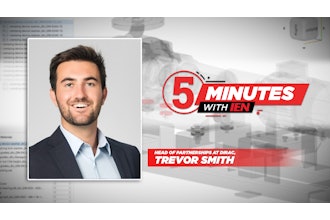NEW YORK (AP) — Nearly a year after Courtney Jackson launched her clothing business, she took on a partner to help manage the company's growth. A month into the partnership, something was wrong.
Jackson's partner was supposed to handle half the company's workload, but that didn't happen. So, Jackson began taking on more of the responsibilities. When Jackson tried to discuss the division of work, "she was a little defensive at first, and asked me to be patient." The situation didn't improve, and they agreed to part at the end of last year, just three months after the partnership began. But under their partnership agreement, drawn up without an attorney, dividing the company's assets would have weakened it financially. The partners decided to close, and Jackson lost her company.
The failure of a partnership often brings hard lessons for company owners. Problems often start when prospective partners don't think through all the ramifications of what they're doing — including whether they'll be a good fit. They may not be clear on their expectations for each other, and how they'll resolve conflicts. And they may not consider the legal consequences of how they set up their partnership, and how difficult it might be to unwind it; rather than hire an attorney, they write their own agreement that can be problematic when the relationship turns sour.
Jackson's experience taught her that she needed to be more strategic in her business decisions. And in choosing a partner — Jackson had met hers through a mutual acquaintance,
"You need to make sure you know the person well enough to know what their strengths are and their weaknesses," says Jackson, who lost her enthusiasm for retailing after the company closed. She now is the sole owner of an information technology company in Tampa, Florida.
Owners are so caught up in the idea of finding a partner to get investment money, help and expertise that they don't do the kind of due diligence they would do before hiring an employee, says Michael Howard, a management professor at Texas A&M University's Mays Business School.
"What will happen when you grow? What's your process for resolving problems? How should we manage this project? If you ask these kind of questions, it could reveal a lot of problems in advance," Howard says.
While partnering with strangers has potential pitfalls, so does going into business with friends.
"It's important to have trust and strong social ties, but if maintaining them comes at the loss of business success, that's not really appropriate," Howard says.
Partners also need to be sure they share the same goals for the business, or at least understand what their differences are.
"You need to talk up front about what your expectations are, for long term, short term, two-year and five-year picture," says Sandy Jap, a marketing professor at Emory University's Goizueta Business School who has done research into partner selection. She suggests owners talk to other people who have worked with their prospective partners, in much the same way they'd check a job candidate's references.
Lisa Shepherd needed cash to help her marketing business grow, so she gave three employees equity stakes. Within two years, the deal went bad as the four owners argued over whether to reinvest earnings into the business or distribute the profits among the partners. They also disagreed about workloads — "each person thought that he or she was working incredibly hard, while the others weren't," says Shepherd, owner of The Mezzanine Group, based in Toronto.
One point of contention came as the partners who did the day-to-day work accused Shepherd of going out for lunch too often rather than working although those meetings led to new business.
"My work was outside the company, networking, opening doors," Shepherd says. They thought, 'she's having a grand old time and not doing any work.'"
Shepherd did have an attorney draw up a partnership agreement at the start, ultimately the "best business decision ever, worth its weight in gold," because it took just two months to end the partnership. Since she held a 55 percent stake, Shepherd was able to buy her partners out and retain ownership. Still, she says, "it was emotionally devastating. I had thought that everything would go well and having partners in the business would be utopia."
Today Shepherd is a sole proprietor. She has a profit-sharing plan for her general manager but doesn't plan to bring on another partner.
Even when a partnership is long-lived, there can be hard lessons — among them, facing the fact that the partnership doesn't work anymore.
"You need to get good at saying goodbye when the value in the relationship does end," says Jap, the Emory professor. A breakup may be necessary even if the company is successful.
Antonio Argibay's partnership lasted more than 30 years, but during its last decade, the partners no longer agreed about the direction the architectural firm should take. But breaking up was difficult.
"It was always, things are too tough, there's a downturn, or things are going great. It was never the right time," says Argibay, now the sole proprietor of New York-based Meridian Design Associates.
Finally, in 2013, they decided Argibay should buy his partner out, but it still took six months for them and their attorneys to work out the details. One problem was the fact the partners had a 50-50 split. "There's no way to break a tie. Someone has to withdraw, win or lose," Agibay says.
His takeaway from his partnership: "Without a clear, shared vision, the business was not going to survive."






















